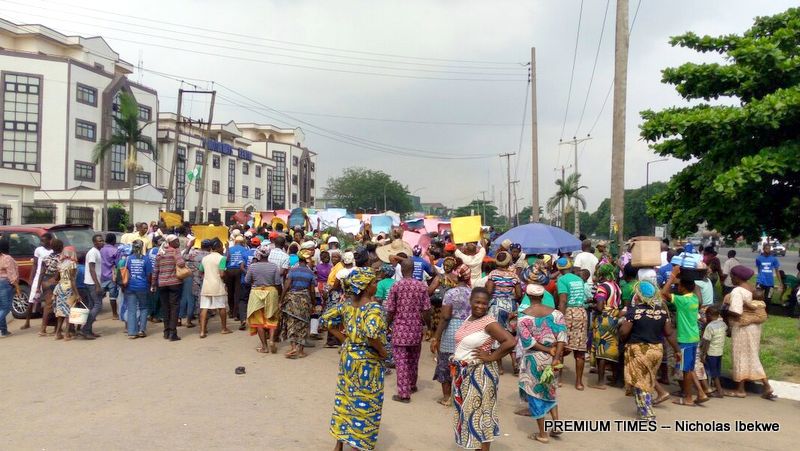
The United Nations Rapporteur on Adequate Housing, Leilani Farha, on Thursday demanded an explanation from both the Lagos and Nigerian government over the forced eviction last week of inhabitants of Otodo Gbame, a waterfront slum community on the edge of the Lagos lagoon.
Almost 30,000 people were rendered homeless, according to the Justice and Empowerment Initiative, a non-governmental organization that had worked extensively with the community people.
The UN Special Rapporteur on Adequate Housing is a component of the right to an adequate standard of living, and on the right to non-discrimination in this context.
“It has been brought to my attention that the evictions may have involved the extreme use of force and fire by the Nigerian police force and Lagos State Government, leaving individuals and families scrambling in the middle of the night to find safety and shelter,” said Ms. Farha.
“The mass displacement and reports of four deaths are deeply disturbing.”
PREMIUM TIMES reported how the eviction came despite a court order suspending planned demolition of communities along creeks and waterways.
At least seven people died in an ensuing melee after government-owned bulldozers and armed police officers who shot sporadically into the air invaded the community in the early hours of November 9.
The police said it was restoring order after a “crisis that resulted from a violent confrontation between the Egun-speaking part and the Yoruba-speaking part” of the community.
img-20161115-wa0019But the people of Otodo Gbame denied the claim, saying the purported crisis was part of a grand design to force them out of their lands.
In an “urgent communication” from Geneva, Ms. Farha asked the Nigerian government for information on the evictions, the methods used and their compliance with international human rights law.
She also questioned whether the community was given adequate notice or alternative accommodation, as required by international law.
“What makes these evictions particularly concerning is that they were carried out in blatant disregard of a court order and have completely ignored international human rights guidelines on forced evictions,” the UN Special Rapporteur said.
“International law is clear: there must be consultation with the affected community, all alternative options to eviction must be explored, and a resettlement plan must be in place should the evictions be carried out,” she noted.
“Under no circumstances should force or fire be used.”
The people affected, from the Egun and other ethnic minority populations, with no other options, lived in poor-quality homes along creeks and other waterfronts.
“It takes many years to build a home, a community, and a sense of trust with government, but only days to destroy it. It is truly unfortunate that so many people are left with literally nothing but memories of their former lives and questions about their human rights,” Ms. Farha said.
PremiumTimes
END

Be the first to comment